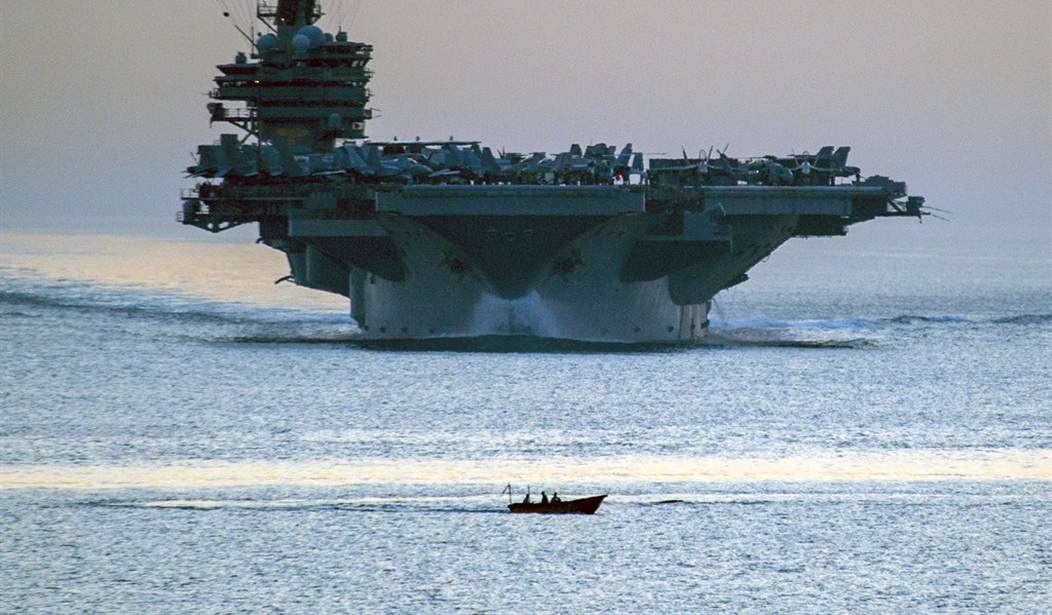The world is a dangerous place – and it would be foolish to pretend otherwise. While the end of the Cold War more than 25 years ago brought with it the promise of a prolonged peace, it was tragically shattered by the events of Sept. 11.
If the attacks on New York and Washington taught us anything, it is that America must be prepared, now and always, to defend its interests wherever they are found. How that is best done, in the age of Trump when America leads by example rather than by force, is a delicate question. Shifting international alliances, the spread of radical Islamic extremism, and expansion by the Chinese further out into the Pacific are all issues that could each by themselves demand the Pentagon’s full attention.
The best way forward, and most efficient way to combat these and other emerging threats is to find the most effective ways to utilize our military strength combined with the force-multiplying power of the private sector. In this way, America can prepare itself for the next conflict no matter where it happens.
Everywhere the U.S. has a presence must be considered a potential future battlefield. Cyberspace, outer space, and conventional space are equally vulnerable to moves by an ambitious power seeking to expand its influence on global affairs by force. Atop that list perhaps is the People’s Republic of China, which it is important to remember, not that long ago launched an aircraft carrier of its own design and construction.
Recommended
That its newest military ship was probably constructed through the exploitation of U.S. manufacturing intellectual property either stolen or extorted from American commercial interests exemplifies just how many facets these new threats take. And just how ambitious America needs to be in preparing to counteract them.
A few years ago, I obtained my Merchant Marine Credential (OUPV 6 pack) and can tell you first-hand there comes a sense of safety and pride offshore when you see a ship flying our American flag. While there are many things America should do, one thing we ought not, despite repeated urging to do so on supposed economic grounds, is to repeal the part of The Merchant Marine Act of 1920, a federal statute that provides for the promotion and maintenance of the American seagoing commercial fleet known as the Jones Act (after its principal sponsor, the late Washington State Senator Wesley Jones).
The Jones Act requires all goods transported by water between U.S. ports be carried on U.S.-flagged ships constructed in the United States, owned by U.S. citizens, and crewed by U.S. citizens and U.S. permanent residents. Some argue, especially those in the business of moving crude oil between U.S. ports and the rest of the world, that it imposes unnecessary costs on consumers. That work, they say, could be done cheaper and more efficiently if ships from any nation were allowed to do the work without regard to the composition of the crew, ownership, or registration.
That’s an interesting argument but one that is, or at least should be subordinate to U.S. national security interests. Without the Jones Act, the United States would likely exit the commercial ship construction, maintenance, and operation industries. It would mean the end of the U.S.-flagged merchant fleet, which in time of war, would be disastrous to America’s ability to emerge on the prevailing side.
The Jones Act also provides America defense on the cheap. The cost of replacing what might be lost should the act be abolished runs well into the tens of billions. That also assumes there is time to rebuild – which there might not be.
Thinking again about China, Adm. Phil Davidson – the current head of the U.S. Pacific Command – told the U.S. Senate during his confirmation hearings he was not at all sure the United States would be the winner in a military conflict with the PRC. During his testimony Adm. Davidson called China “an arrived great power and peer competitor” thanks to what he then called “a rapid military modernization over the last three decades and is approaching parity in a number of critical areas.” It is, and the United States needs to respond, not just by increasing the size of the U.S. Navy’s combat fleet but by making sure its Merchant Marine remains viable just in case a conflict should arise.
The mere possibility of a future conflict of China or in a perpetually unstable region of the world like the Strait of Hormuz requires the preservation of the domestic shipbuilding industry and a home-based merchant fleet. Getting rid of the requirements imposed by the Jones Act might save a few dollars but would be profoundly foolish and unsafe.
Derrick Hollie is President of Reaching America, an organization that addresses complex social issues impacting African American communities today.

























Join the conversation as a VIP Member